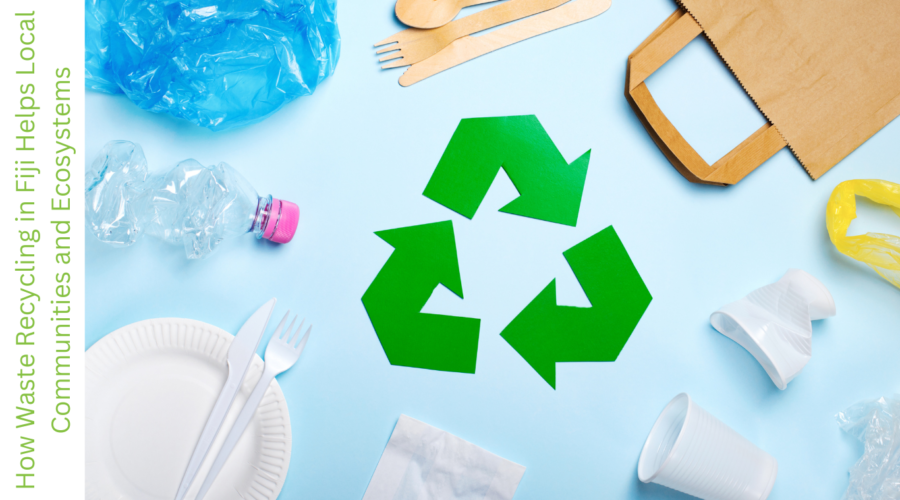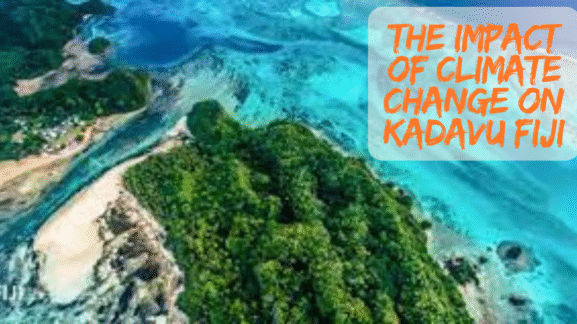How Waste Recycling in Fiji Helps Local Communities and Ecosystems
Waste recycling in Fiji is an issue of interest because it impacts the environment of Fiji and people living in this country. Fiji has started recycling more in the past few years to reduce trash that harms the islands.
Why is recycling important?
Recycling assists in the mitigation of waste produced in several ways; it involves the conversion of products such as plastic, paper, metal and many more into other useful products instead of being discarded. This not only minimizes on dumping of waste at the dump sites but also ensures that natural resources are conserved. Waste recycling is very compulsory in Fiji, because of the ecological condition and the enhancing impacts of tourism and population increase in the country.
Historical Context of Waste Recycling in Fiji
The recycling of waste in Fiji initially started on a small scale. Some of the earlier methods used for its disposal were to just bury it or to incinerate it. This approach to waste disposal was not only disadvantageous to the environment but also incapable of addressing the increasing pile of waste.
It was during early 2000 that Fiji realized the imperative for change. With an increase in the country’s population density and the development of tourism activity, cleaning the territory from garbage also became problematic. Recycling was considered an option by the government and other local organizations as a way of dealing with the problem of waste. These undertakings, therefore, signified a paradigm shift in how waste was disposed of, especially in Fiji.
Community Involvement and Local Initiatives
Waste recycling in Fiji goes beyond formulating policies and putting in place regulations of the government. Local communities and local initiatives have a big hand in making the recycling process a success. Schools, local groups, and everyone in between are now joining to contribute in several ways to help continue the cleanliness and greenness of Fiji.
School Recycling Programs
Many schools in the Fiji Island have embarked on encouraging recycling programs in their schools. These programs enlighten the students on the program of recycling and how the process should be accomplished. Students can make distinctions concerning different types of waste including paper, plastic and glass. In some instances, they conduct competitions such as, ‘recycling wars’ where children are asked to bring more recyclable items to school. These ideas make children learn the importance of recycling at a tender age which eradicates the throwing of garbage on the streets.
Community Clean-Up Events
It is common to have cleaning events by participating residents of a certain area. These events make volunteers help pick the litter from the beaches, parks, as well as streets. They assist in the elimination of wastes that would otherwise be dumped into the seas or the dumping grounds. Such fairs people help their community to clean their environment. These clean-up days also serve the purpose of creating awareness of environmental conditions, especially on issues of waste management.
Local Recycling Centers
Local recycling facilities are built to help the environment. These centres are usually operated by a local association or non-profit organization. They also offer an opportunity where individuals can drop their materials which are declared to be recyclable. Some of these centres also provide information on how to recycle in the right manner through the provision of educational sessions. These centres create a convenient way for people to recycle hence contributing to waste recycling in Fiji.
Business Contributions
Fiji’s local businesses are also participating in the recycling of waste. Some have embraced recycling by starting their own programs for recycling. Most of them like to get back the products or the packaging once used. For instance, some stores provide special coupons to clients if the latter present their reusable bags or containers. Thus, using these practices, companies do a great job in the reduction of waste and proper recycling.
Environmental Awareness Campaigns
It is the local community groups and organizations that initiate recycling awareness campaigns in the community. These campaigns employ different mediums including; postings, social media, and community gatherings among others. They remind the benefits of recycling and give some tips on how to recycle at home. It just assists in making the public know why the issue of recycling is vital, and the things that one can do to make it effective.
How Waste Recycling in Fiji is Good for Nature
Reducing Pollution
There are numerous benefits of waste recycling; one of these is the avoidance or prevention of pollution. Recycling means that less wastes are incinerated, and or buried in the landfill. This helps to emit less injurious smoke and chemicals in the atmosphere and the water bodies. You can reduce what is polluting our surroundings by recycling which will make the world a much safer place for all of us.
Conserving Natural Resources
Waste Recycling in Fiji also has the effect of preserving the natural resources in the country. Most products are manufactured from materials such as trees, minerals and oil. This means that we distance ourselves from using new papers, glasses and other metals, by reusing the already used ones. This in turn minimizes the requirement to pull new resources out of the ground and process them, which saves wild places and their inhabitants.
Saving Energy
Recycling is usually more environmentally friendly than using new material every time because it requires little energy to accomplish. The recycling of wastes has the effect of fighting the causes of climate change; greenhouse gases.
Preventing Landfill Overflow
They are actual areas where waste is disposed of and buried and hence are bound to be filled up at one point in time. Waste recycling in Fiji offers an opportunity to cut down on the dumping of wastes in the limited land and facilities available for disposal to prevent over-spill. With less waste going into landfills, there are reduced opportunities for dangerous chemicals to seep into the ground and water.
Protecting Marine Life
The plastic wastes and others endanger the lives of fish, turtles and other sea animals, so recycling keeps our seas cleaner.
Recycling of waste in Fiji has enormous effects on the surrounding ecosystem. Recycling means the protection of marine life, preservation of habitats on land, less pollution, more support for different species, and encouraging people to use the resources wisely. By measuring the benefits, we can understand how crucial recycling is in the health and sustainability of our natural surroundings. More work has to be done for recycling if we are to succeed in protecting the ecosystems and the animals that inhabit them.


